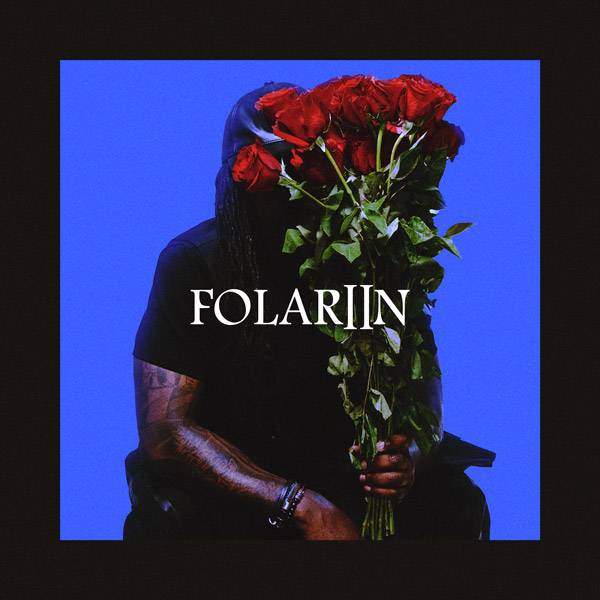
Wale 'Folarin II' Flashes Greatness But Gets Clouded With Career Recognition Raps
Longevity in rap is sometimes uncelebrated and influence is understated. Wale understands this well, spending the entirety of his 13 years creating a musical space in the DMV only to be left out of top rappers lists. On Folarin II — the sequel to his 2012 mixtape — Wale sounds focused and determined; the raps are sharp and confident, but the bitterness over the lack of career recognition dulls the tape’s finer moments.
On the soulful opener, “New Balances,†the D.C. rapper confidently proclaims he’s “back with so many rap flows,†all while playing catch up with listeners. The confidence in his bars is radiant, and the verses are delivered with dead-shot precision. Wale’s opening words, “They ain’t want me here,†speaks volumes about his feelings toward the rap game. He seems to feel rejected and forgotten about, despite his impact on the blog era.
This is in direct contrast to “Name Ring Bell,†where Wale says he no longer wastes time on haters, he simply forgives them. He’s also confident in the mark he’s left on the DMV scene over the last decade. The two songs showcase the dichotomy of Wale, a grizzled veteran with confidence in his impact and abilities, yet deep down harbors a tinge of insecurity and desire to be respected.
The production often incorporates Go-Go dance rhythms and other styles of bounce, staying true to his DMV roots. A good example is “Down South,†which features a skull-shattering sample of Mike Jones’ “Still Tippin’.†The original syrupy violins are still looped but faster and urgent. And the once promethazine-doused drums are now sped up and befitting for a Miami nightclub. Maxo Kream and Yella Beezy also link in place with Wale, delivering a cypher of Southern realness.
A less effective, dance-infused moment comes on the J. Cole-assisted “Poke it Out,†a shoulder shaking anthem that doesn’t take itself too seriously but, at times, feels more cringey than fun; like when Cole shouts out Coi Leray and Megan Thee Stallion at the end of the song in a frat boy cadence, as if he’s not closer to 40 than 20 years old. It sounds dated and like a dad trying to sound cool to the kids. “Jump In†also feels out of place, with way too much happy-go-lucky energy that makes it sound like a Macklemore song.
A bulk of the project revolves around Wale’s fight for recognition. On “Tiffany Nikes,†he ruminates on the ups and downs of his career, staying fixated on his legacy despite his wealth. He’s focused on why his career isn’t where it should be when he holds the belief he birthed the newer generation.
“In 2009, I was putting ‘em on, they wasn’t excited,†Wale raps with an irate twinge in his voice. “Now they on the blogs for dressin’ just like me, ironic.†On “More Love,†he finds it exhausting to stay optimistic, looking for peace in waters where critics are sharks. While these moments provide transparency between the artist and listener, it comes off as bitter and crotchety.
But where Wale shines is on his R&B songs. Like on “Caramel,†which features a Faith Evans sample for the chorus. Wale deals with falling in love with a girl but has difficulty giving her proper attention due to him chasing his goals. Or on the night-drive ready, “Light Years,†where Wale recalls borrowing Rick Ross’s cars to pick up women. It also features a run-of-the-mill Rozay verse, who’s in the mood to watch his son become a man. Cynicism aside though, it is a nice moment to see the two Maybach Music Group veterans continuing to work together.
But album highlight, “Fire & Ice,†steals the show with its sample of Mint Condition’s “This Day, This Minute, Right Now†as Wale gets in his groove with a bedroom-dressed verse.
The finest moment on the album comes on the Jamie Foxx Show-sampled, “Dearly Beloved.†The sultry sample of Foxx singing to his ex (on her engagement showery) is beautifully chopped and looped. Over the piano melody, Wale lays an emotional verse, reflecting on a lover who’s moved on to someone else. Accompanying the pain in his pen, there’s a silver lining of acceptance that comforts him throughout his lyrics.
Folarin II places Wale back in a focused light but brings more attention to the lack of accolades given to him rather than the quality of his current output. Appreciation should be paid to rap veterans but when it becomes a main focus, it can grow tiresome. And yet, Wale has a point, even if it’s delivered in a grating way.
REPEAT ME
FAN FEEDBACK
Wale stuck his foot in this Folarin II album. Best body of work I’ve heard from him since Ambition.
— Cousin Greg (@OffThePJ) November 10, 2021
Walllleeeeeeeeeeeee!!! Come on FOLARIN 2!!!! This album slaps! I’m not even from DC and I wanna beat my feet all through this house to Jump In @Wale
— Fanuch (@MzKia716) November 2, 2021
Folarin II sucks. & I really fuck wit Wale too
— Mitch (@mitchthemanager) October 22, 2021
This new Wale would have been a killer EP instead of an ok LP that it is. Do not recommend, especially if like me, can’t stand Chris Brown.
— (leave) Nelson B (@leavenelsonb) October 22, 2021



